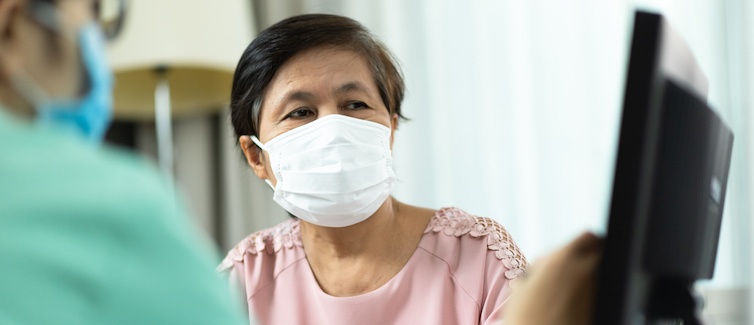Urinary incontinence (UI) is the unintended loss of bladder control. It is common in women and men, but more women experience it.
For some women, everyday actions such as coughing, sneezing, laughing, and physical activity may cause a small amount of urine to leak. Others may experience enough leakage to wet their clothes a little. And some women have a strong, sudden urge to urinate but don’t make it to the bathroom in time. Depending on the individual, UI can be a minor inconvenience or a major burden that leads some women to stay home for fear of having accidents.
In addition to causing embarrassment, urinary incontinence can cause skin irritation. Many women with UI wear panty liners or adult incontinence pads or panties. While these aids may keep urine from wetting your clothes, the urine stays in contact with your skin.
According to the National Kidney Foundation, prolonged contact with urine can cause skin rashes. The rashes become worse when clothing rubs against wet skin. The irritation can also lead to yeast and bacterial infections in the genital area.
Any woman experiencing UI should be evaluated by a doctor. Some UI is caused by a temporary health problem and can be cured quickly. Treatment is available for all types of UI at UPMC. Our experts in urologic health tailor treatments to meet your needs
Never Miss a Beat!
Subscribe to Our HealthBeat Newsletter!
Thank you for subscribing!
You can now select the specific newsletters you'd like to receive.
You are already subscribed.
Subscribe to more newsletters in our email preference center.
Sorry, an error occurred. Please try again later.
Get Healthy Tips Sent to Your Phone!
Causes of Urinary Incontinence
UI is usually caused by problems with the pelvic floor muscles that hold the bladder, uterus, and bowel in the correct position and work to prevent unwanted leakage. Causes can include:
Diet and lifestyle
Caffeine and alcohol both cause your body to make more urine. If you have problems with UI, these things can make it worse.
Eating a poor diet can cause constipation. Straining during a bowel movement not only puts pressure on the bladder — it also weakens the pelvic floor muscles. Repeated pressure can cause UI over time.
Tobacco use irritates the bladder and causes coughing. Coughing places stress on the pelvic floor and weakens it over time.
Medicines
Some blood pressure medicines cause your body to produce more urine. Having more urine in your bladder increases the chance that you will not be able to hold it. Some of these medicines can interfere with your ability to void completely, increasing the chance that small amounts of urine may leak.
Certain antidepressants and sedatives also can reduce feeling in your bladder. When you aren’t aware that your bladder is full, you may have trouble reaching a toilet in time.
Infections
Infections of the urinary tract (kidney, bladder, ureters, or urethra) can cause UI. Infections irritate the bladder and urethra, making it harder to control when you urinate. UI caused by infections is usually temporary.
Pelvic floor dysfunction (weak muscles of the pelvic floor)
Pregnancy and childbirth are common causes of pelvic floor dysfunction. Extra weight during pregnancy and the delivery itself can weaken those muscles. The National Association for Continence states that 30 to 50 % of women who have given birth (either vaginally or by C-section) experience UI.
Being overweight adds stress to the abdominal muscles, which can weaken the pelvic floor and lead to UI.
Surgery or radiation to the pelvic area also can weaken or damage those muscles, making it harder to control your bladder.
Surprisingly, age is not a cause of UI. Women’s pelvic floor muscles tend to become weaker as they age, but age alone does not cause UI. Instead, as you age, you are likely to have experienced more conditions that can cause it.
Nerve damage in the pelvic floor
Your brain uses nerves to control your muscles. If nerves are damaged, your brain can’t tell the muscles what to do. Some women have UI because the nerves in their pelvis are damaged. This can happen as a result of pregnancy and childbirth, or from diabetes, injury, or surgery to the pelvic area. Some chemotherapy treatments for cancer also can cause nerve damage in the pelvis.
Ask your primary care doctor for a referral to a UPMC urologist, or visit our website to schedule an appointment.
Sources
Urinary incontinence in women. Annals of Internal Medicine. Link
Urinary Incontinence. Drugs.com. Link
Managing incontinence during pregnancy and after childbirth. National Association for Continence. Link
Urinary incontinence. Cancer.net. Link
Urinary incontinence. American College of Obstetricians and Gynecologists. Link
About Urology
The UPMC Department of Urology offers a wide variety of specialized care for diseases of the male and female urinary tract and the male reproductive organs, including erectile dysfunction, kidney stones, urinary incontinence, prostate cancer, and more. We have a multifaceted team of physicians and researchers working together to provide the best care to both children and adults. Our team is nationally renowned for expertise in highly specialized technologies and minimally invasive surgical techniques. To find a provider near you, visit our website.
